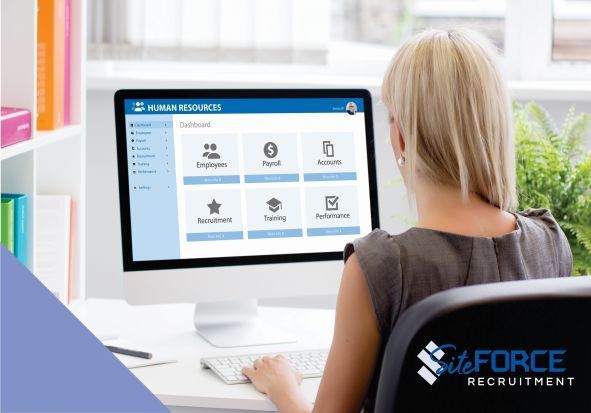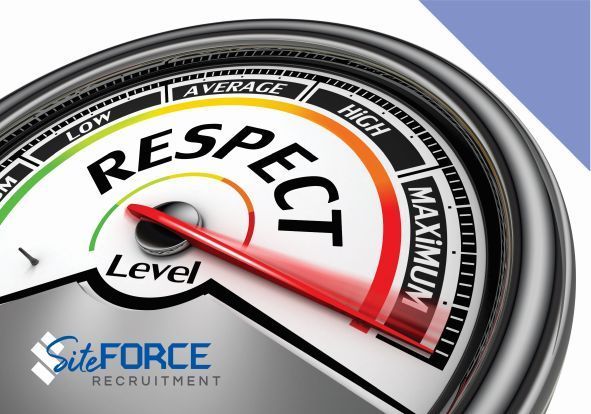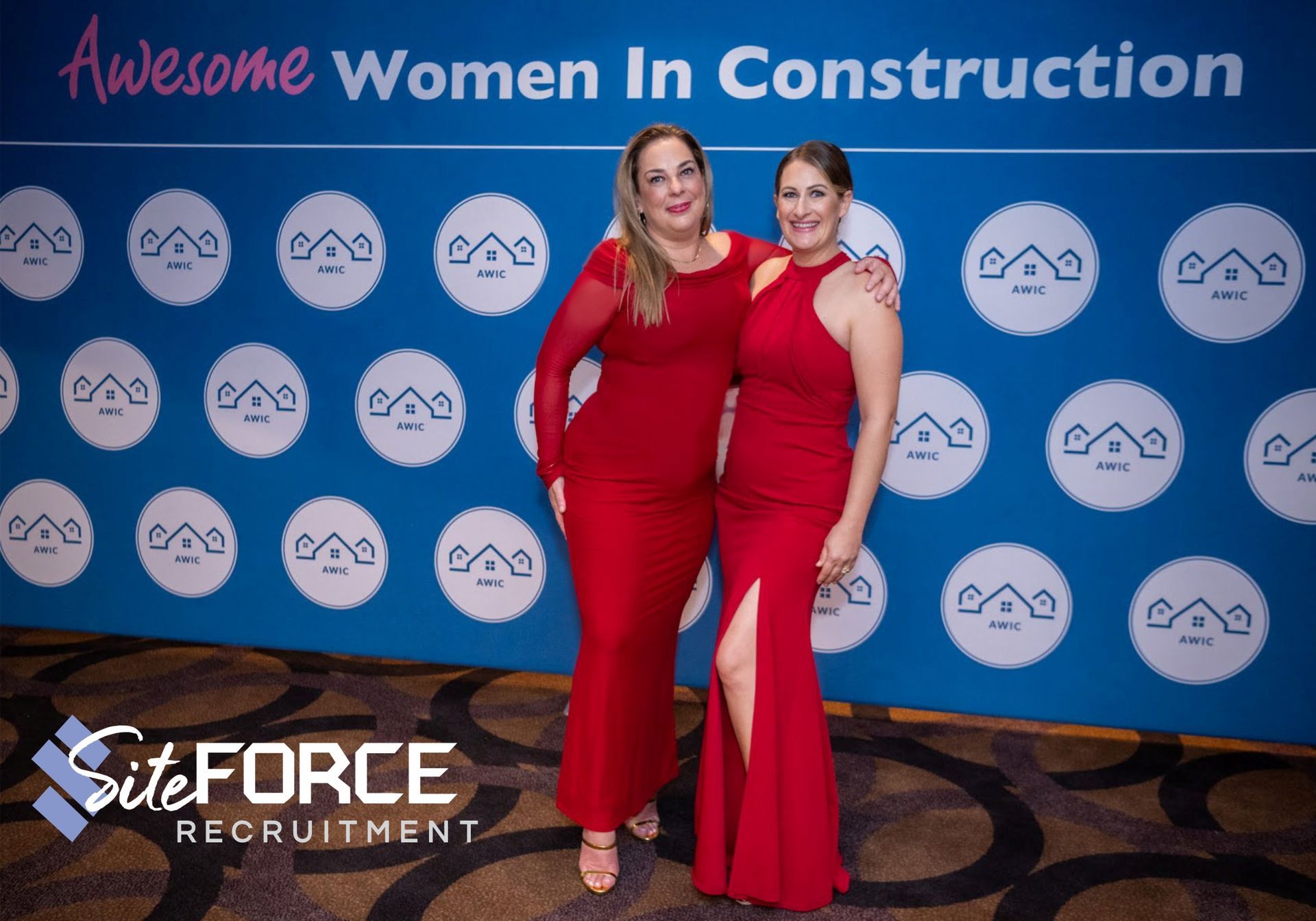Learn 6 Soft Skills To Succeed At Work & Life
SiteForce Recruitment insight into top skillset employers look for in 2023

Your skills are your most valuable commodity in the jobs market so regularly upskill to stay ahead of the competition. You have two skillsets – hard skills, and soft skills. In 2023, soft skills are becoming almost as sought-after as hard skills in the current world of work. So what does that mean for you?
Hard skills are easy to measure and track, and although they might not be easy to gain or improve, they are simple to understand. These are the skillset that were marked successfully won you your apprenticeship and trade certificate. For professionals, these are the skills you were assessed successfully to achieve your employment, diploma or degree.
Soft skills however are far harder to measure—let alone learn. But skills like communication, empathy and critical thinking are just as important to your success - not only in your job, but also in life. So let’s at the six most important soft skills for your career and how you can learn them on the job.
· Coachability: Able to take and incorporate constructive feedback;
· Empathy: Able to relate and come up with win-win solutions;
· Effective Communication: Able to present clearly and effectively to avoid musunderstandings and error;
· Critical Thinking: Able to analyse potential choices and the best route to take;
· Creativity: Able to adapt your approach and find unexpected solutions;
· Solution-Focused Attitude: Able to problem solve to overcome obstacles;
Work on developing these soft skills, and you’ll be successful no matter what you’re doing. Here’s the detail for you:
1 Coachability
You know the saying “It takes a village”? Successful tradies and professionals don’t climb the ladder by ignoring everyone who gives them constructive feedback. On the contrary, they take on the good advice they’re given and thoughtfully incorporate it. The operative word is “good”: you can and should disregard bad advice when you get it. Being coachable throughout your career, rather than just at the beginning, means you’ll never stop advancing and improving.
How to Achieve This
If you take constructive feedback personally or negatively, you’ll have a hard time being coached. Remind yourself when receiving feedback from a knowledgable source, that the other person is trying to help you professionally and that their words aren’t an attack on your skills, personality, or worth. (Sounds obvious, but it’s easy to forget in the moment.)
Always assume positive intent. In other words, give your team member or manager the benefit of the doubt. Believing they’re coming from a good place will make you more receptive to their recommendations.
2. Empathy
To be honest, a lot of people in our experience don’t understand empathy. No, it doesn’t mean you need dto dress all in black and wear dark eyeliner as a “Empath”. What it really means, is that you have the ability to relate to another person and understand and share their feelings. You don’t take on their feelings, but rather stop focusing on your own position, and understand the other’s position. Relating to someone else does wonders for your work and life relationships. Not only can you come up with win-win solutions but you’re also more patient, tactful, and persuasive. As an added benefit, your relationships will naturally get stronger.
How to Achieve This
Firstly, listen to hear, not listen to respond. To be able to relate to someone means you need to understand their position from their perspective, not from your assumptions. Scientific studies have proven that you can become more empathetic by literally imagining yourself in the other person’s shoes. Try this exercise next time you’re struggling to see things from another’s point of view.
3. Effective Communication
Between talking to recruiters (yes we mean us), employers, clients, other tradies and professionals, admin staff or suppliers, the majority of the workday is spent communicating. Then, when you get home it starts again with those in your social or personal circles. To avoid misunderstandings and error, you need to be able to effectively communicate and present clearly and effectively.
How to Achieve This
If you’re not a natural public speaker, consider joining a club or organisation to widen those you meet and speak with. If you volunteer, you will get more opportunity to see how others communicate, and more opportunity to do that yourself. You could also consider taking a course on public speaking. You will be nervous at first, but if you take it on as a mission, it will get better. To improve your writing skills, consider an intro writing class at the local college or online.
It may also be a good idea to periodically ask your mentor or coworkers for feedback, i.e. “Did I explain that in enough depth? What did you take away from that?”
4. Critical Thinking
Once again, in our experience, this is one people misunderstand. No, it doesn’t mean thinking critically of others or situations. Not at all.
Critical thinking in the workplace means the ability to organise information logically to make a reasoned judgment. It involves the evaluation and sorting between ‘useful’ and ‘arbitrary’ sources, facts, details and research to come up with a big-picture perspective that leads to an impactful decision or solution to the problem. It’s the ability to come to a reasonable conclusion by “connecting the dots”.
In the workplace, critical thinking helps you analyse potential choices and take the best route. It also gives you a sense of when something is not right so you can probe further, whether you’re in a meeting on the job or talking to a different area, supplier, or department.
How to Achieve This
Ask a lot of questions, even if you think you know the answer. The objective is not to be the one showing you’re your knowledge, but ask questions to test other’s knowledge or views. You’ll often be surprised at what the other person says. If their answer conflicts with your own, it’s a good sign to delve more deeply. You should also question basic assumptions. Look out for statements that start with “As we know”, “It’s obvious that”, and Well, we can assume”. Pause and say, “Actually, do we know that?” or “What’s the evidence for that assumption?”
5. Creativity
A creative mindset is a huge asset in any professional role, especially for problem solving.
Most industries and businesses change constantly. To keep up, you must be able to adapt your approach and find unexpected solutions. Creativity will help you and your employer stay ahead of the curve.
How to Achieve This
Break free from the “We’ve always done it this way” mindset. Be open to new ideas, whether they come from you or someone else. Organise brainstorming sessions with your team where you can suggest anything you think of. Then narrow down your ideas to the most impactful, possible, and relevant. Experiment as much as possible, then analyse the results to see if you should double down on that initiative or iterate.
6. Problem-Solving Attitude
Whether you are trying to improve your productivity, improve the quality of your relationships, or resole conflict, a problem-solving mindset is essential for success. Even with the best planning and preparation, things will go wrong for you. When this happens, your problem-solving mindset will enable you to find the best path forward. You will be able to achieve your objectives quicker, help others to find solutions to their problems and reduce conflict and stress.
Your attitude is, in most areas of your life, the most important factor in determining success. It’s important to stay positive and believe you can overcome obstacles. This mindset will keep you motivated during the tougher periods at work. You will become a valuable resource for friends, family and coworkers. Even in the most pressured of situations, you will be seen as an ally rather than a threat.
How to Achieve This
First, don’t bury your head in the sand when you encounter a problem in life. Choose to do something proactive. Secondly, keep control of your emotions. If you become angry or distraught, these emotions are powerful and will influence your decisions and actions, that in a reasonable mind, you would not otherwise consider.
Next, decide what is the true nature of the problem, the outcome you desire and what is the goal. The next stage is what steps are needed to get there. If the problem is a big one, it can be intimidating and sap your motivation. In this case, break it down into steps and small, manageable tasks, which are simpler to tackle. Plus, each one you finish will boost your motivation.
Related articles:
5 Tips To Attract the Dream Job in 2023
SiteForce Recruitment specialise in labour-hire and permanent recruitment in the construction industry. We are committed to valuing people, safety and well-being, collaboration, trust and of course – results!
CONNECT with us via our contact page or bookings links on our website if you are looking to recruit for, get your dream job, or join our amazing labour force team.
#siteforcerecruitment #recruitment #labourhire #brisbanejobs











